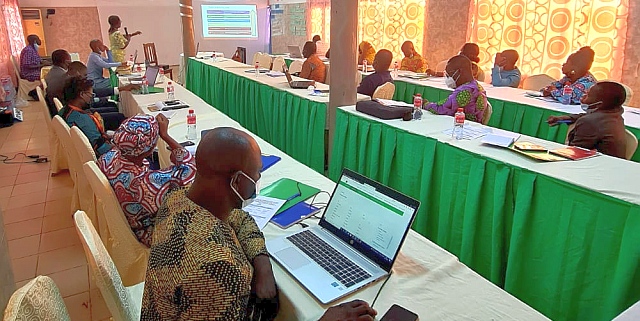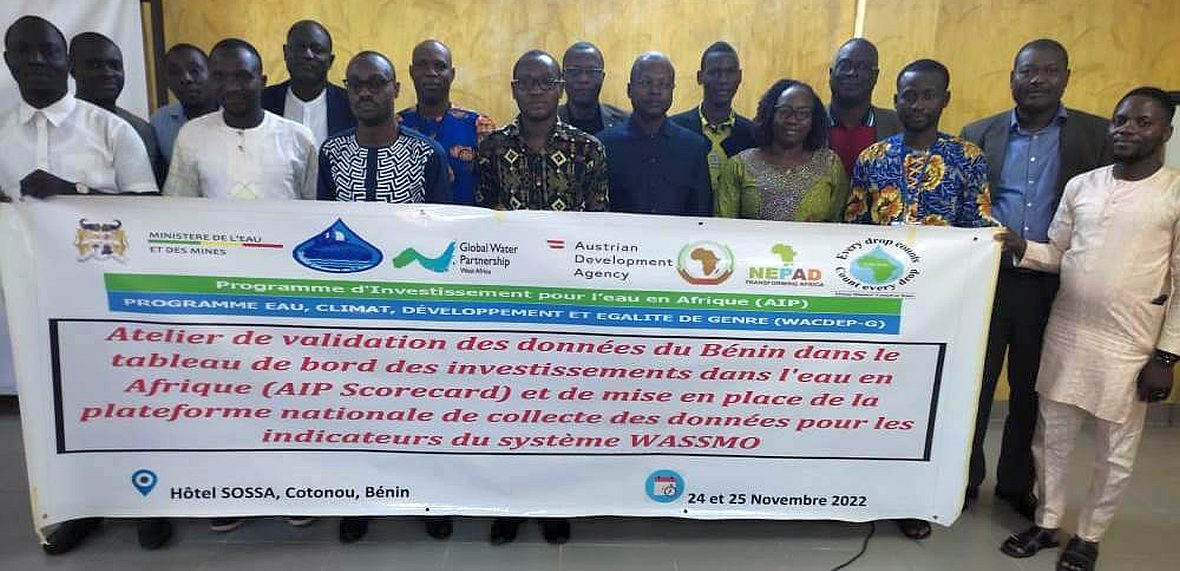Despite this recognition, investments and institutions related to water and climate change often lack gender-responsive approaches. To address this gap, the Continental Africa Water Investment Programme Gender Transformative Water Climate and Development Program (AIP WACDEP-G), implemented by the Global Water Partnership (GWP) Africa, was piloted in five countries, namely Benin, Cameroon Tunisia, Uganda, and Zambia. This programme, implemented with main support from the Austrian Development Agency (ADA), focuses on transforming gender inequalities by promoting gender-transformative planning and decision-making in climate-resilient water investments at all levels for sustainable water security in Africa.
 In its second phase, AIP WACDEP-G is expanding its reach to five additional countries, namely Burkina Faso, Kenya, Malawi, Mozambique, Republic of Congo aiming to further integrate gender equality into water security and climate resilience initiatives across the continent.
In its second phase, AIP WACDEP-G is expanding its reach to five additional countries, namely Burkina Faso, Kenya, Malawi, Mozambique, Republic of Congo aiming to further integrate gender equality into water security and climate resilience initiatives across the continent.
“The African Union Climate Change and Resilient Development Strategy recognizes the importance of resilient water investments in the face of climate change. In 2023, the AIP WACDEP-G Programme supported the African Union Commission in mobilizing political support for inclusive climate-resilient water investments in Africa. Gender equality is integral to closing the water investment gap, a cause being championed by the AUC in collaboration with the High-level Panel on Water Investments in Africa through the Continental Africa Water Investment Programme,” explained Kidanemariam Tiruneh, GWP Southern Africa Technical Advisor.
AIP WACDEP-G has been instrumental in integrating gender equality into key policies and initiatives for water security and climate resilience across Africa. In 2023, the program provided coordination and technical support for piloting the AIP-PIDA Water Investment Scorecard in ten pilot countries including Benin, Cameroon, Tunisia, Uganda, Zambia, Malawi, Tanzania, Central African Republic, Togo and Kenya. This scorecard monitors gender considerations in water investments, providing valuable insights for promoting gender equality in Africa's water sector. A summary report has been generated on the scorecard and country reports for the pilot countries. The performance of these countries on gender issues, as gauged by the Scorecard, offers a valuable baseline for each nation to advance by addressing underlying factors that fuel and sustain inequality. Additionally, the Scorecard's assessments offer data for cross-country comparisons, facilitating an analysis of the factors that promote or hinder gender equality, while considering the distinct social and political contexts within each country.
 The AIP WACDEP-G program contributes to the development of investment plans for water security and climate resilience in Africa, emphasizing gender equality and social equity. It recognizes that unless gender equality is specifically targeted at a systemic level, initiatives and investments in water security and climate resilience may exacerbate gender inequalities.
The AIP WACDEP-G program contributes to the development of investment plans for water security and climate resilience in Africa, emphasizing gender equality and social equity. It recognizes that unless gender equality is specifically targeted at a systemic level, initiatives and investments in water security and climate resilience may exacerbate gender inequalities.
Experience from AIP WACDEP-G is also shared globally to empower women, youth, and indigenous persons in accelerating global water security.
In 2023, the programme launched a continental call for stories and case studies demonstrating improvements in gender equality in water management and climate resilience actions. These case studies facilitate learning and contribute to building climate-resilient water systems worldwide.
“We received many high-quality submissions which were carefully reviewed by an excellent women panel of gender experts. The goal of the competition was to inspire action, amplify the voices of women in water and share initiatives and stories that are driving transformative change towards achieving gender equality and inclusivity in the water, climate, and other development sectors within the Pan African region,” said Litumelo Mate Sievers, Gender Specialist at GWP Southern Africa
 One of the winning case studies was Mozambique’s Gender Environment and Climate Strategy which aims to address in an integrated manner the gender perspective in the water sector, with a view of improving the quality of life of the population particularly women and communities through mitigation and adaptation to climate change and the sustainable use of water resources.
One of the winning case studies was Mozambique’s Gender Environment and Climate Strategy which aims to address in an integrated manner the gender perspective in the water sector, with a view of improving the quality of life of the population particularly women and communities through mitigation and adaptation to climate change and the sustainable use of water resources.
Promoting gender equality is not just a moral imperative but a strategic necessity for achieving sustainable water security and climate resilience in Africa. The AIP WACDEP-G program stands as a beacon of hope, guiding the continent towards a future where water resources are managed equitably, and communities thrive in the face of climate change.
